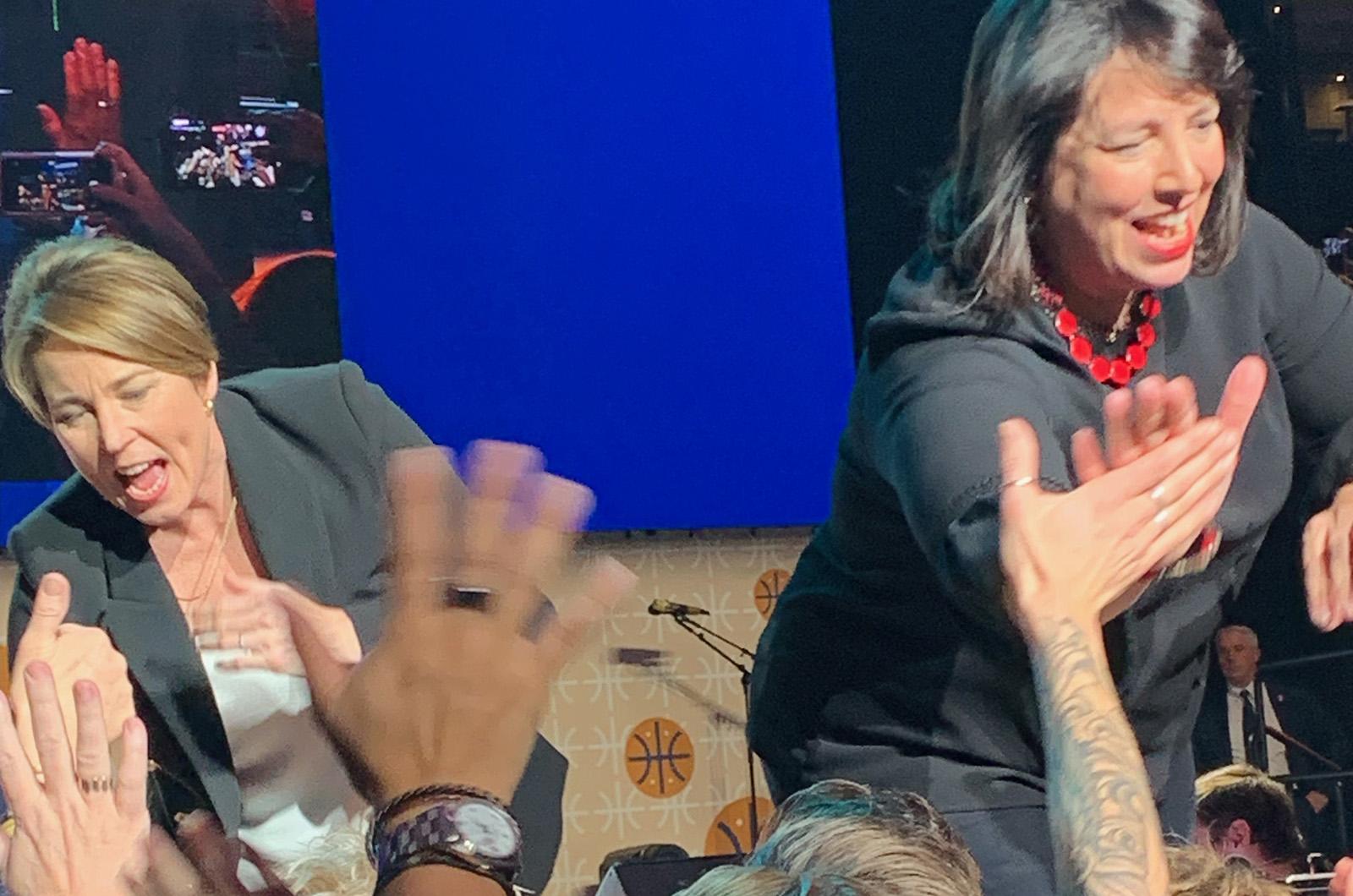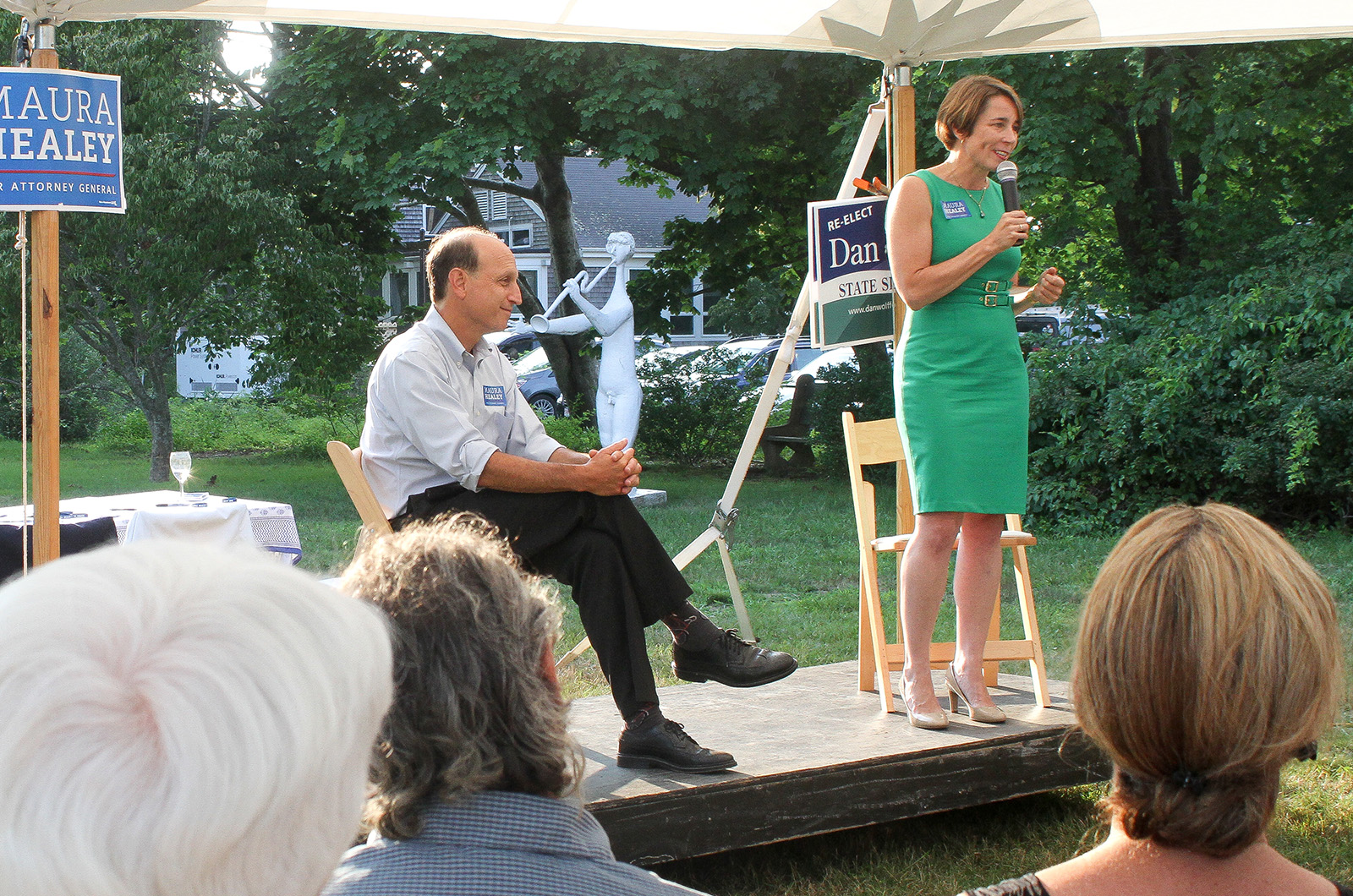It was impossible to not be moved by what took place on the floor of the Boston Garden last week. Sure, the Celtic’s 17 championship banners were hanging proudly from the rafters, but on this night the parquet floor was packed, many of them women and girls, many sporting not stilettos but high-top sneakers matching those worn by the newly sworn in Massachusetts governor and lieutenant governor.
It was, after all, an inaugural celebration entitled Moving the Ball Forward and everyone came to play and pay tribute to the two women who that very day became our governor and lieutenant governor. Shooting some hoops for the cameras before the program got underway, there was broad recognition of history unfolding.
We now have not only a woman CEO of our state for the first time, but someone who is openly gay. And Maura Healey, the former point guard from Harvard, is getting the assist from Kim Driscoll, the former Salem mayor. The old golden dome has never reflected such diversity and soon, Andrea Campbell will be sworn in as our first Black attorney general.
This is not business as usual. The statehouse has never gone above a 31.5 per cent threshold of women-to-men legislators which is where we sit in 2023. There are now 12 women governors which finally topped the previous high of nine set in 2009. Not exactly an earth-shattering leap and it took voters 14 years to get there.
And in her first week on the job, Governor Healey introduced her lesbian partner through a Boston Globe profile. While I’m sure there will be fallout in some circles, Gallup finds 70 per cent of Americans now support same-sex marriage, including 55 per cent of Republicans.
To some, this level of acceptance has the markings of whiplash coming too soon and too fast. In the mid-nineties, the numbers were almost a mirror reverse of today’s public sentiment with 68 per cent of Americans opposing marriage equality.
To that point, it was 1993 when our late former Cong. Gerry Studds was asked during one of his frequent district town meetings if he was still a “practicing homosexual.” Congressman Studds, to the apparent amusement of his audience replied, “No. As a matter of fact, I think I’m very good at it.”
Congressman Studds is probably a decent indicator of changing public attitudes. The first congressman to come out, he did so only after being charged and censored in 1983 for having consensual sexual relations with a 17-year-old page. He faced both a serious primary and general election challenge but won re-election largely because he had already served 10 years and voters, though displeased, rewarded his stellar constituency work and advocacy with their vote. He was re-elected six more times before his retirement.
The late eighties and early nineties were also consumed by the AIDS epidemic. As tragic and horrific as that era was, it also ushered in a new urgency for otherwise closeted men and women to come out. When President Bill Clinton signed the now defunct and disgraced military policy of Don’t Ask, Don’t Tell, magazine covers featured patriotic LGBTQ Americans serving their country. It was becoming increasingly difficult for people to ignore us.
The marriage battle over 12 years, beginning as it did in Massachusetts, only accelerated the change, although there were serious concerns in the beginning. On May 17, 2004, when the victorious Boston plaintiff couples walked from City Hall where Mayor Tom Menino proudly oversaw the issuance of their marriage licenses, to the Probate Court across the plaza, they were surrounded by a circle of armed uniform and plain clothes police prepared for the worst.
Maura Healey was the civil rights chief five years later when she and her boss, Attorney General Martha Coakley, filed the first state challenge to the Defense of Marriage Act. The federal court ruled in their favor, but it would be another three years until the Supreme Court struck it down in 2013, with Maura Healey, who was at the time the assistant attorney general, organizing a powerful, multi-state amicus brief.
So, how significant is it to have a female governor who is also comfortable with who she is? To Debbie Walsh, the director of American Women & Politics at Rutgers University, it’s “enormously significant.”
“I think what happens when you have breakthroughs with folks who become pioneers, it opens the door for others to follow,” she said. “It’s the role model piece and symbolic, but it’s also another perspective at the table. Having a different life experience enriches policy and that has enormous value for the institution and the state.”
It was fitting then, that the closing act of Governor Healey’s inaugural celebration would be Grammy-winning songwriter and singer Brandi Carlisle who brought her wife to the stage for one number. The pair, who hail from Washington state, came to Massachusetts to marry in 2012.
As balloons were released from the rafters and Governor Healey and Lieutenant Governor Driscoll returned to the stage for one last turn, you could feel something very new in the air, with the loudest cheers ringing out from the sneaker-clad women, girls and LGBTQ+ folks waving rainbow-colored light sticks.
Mary Breslauer lives in Chilmark.








Comments (3)
Comments
Comment policy »